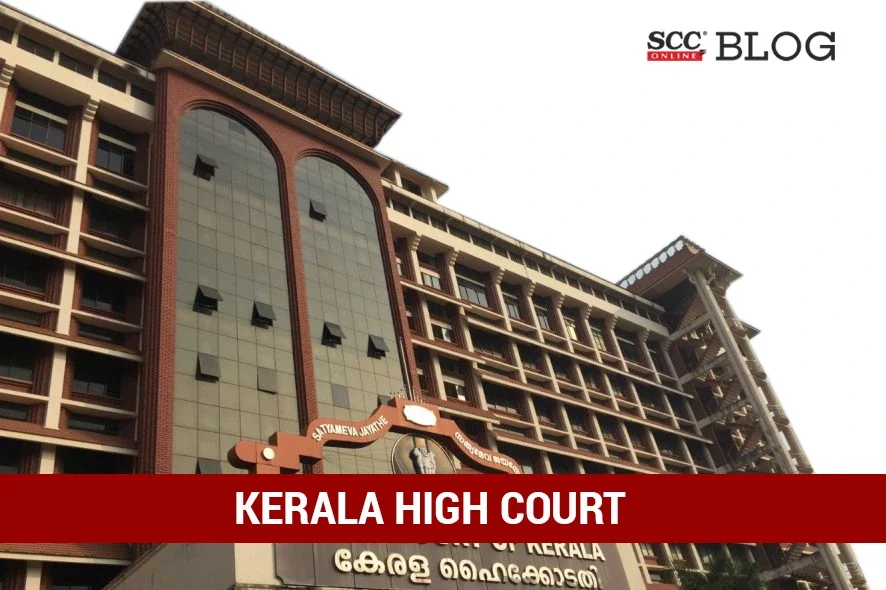Kerala High Court- In a petition filed under Article 226 of the Constitution, P.V. Kunhikrishnan, J.*,opined that a divorced woman should not be handicapped by registering the marriage, following the registration rules under the Kerala Registration of Marriages (Common) Rules, 2008 (Rules 2008), and the power to record the divorce was inherent to the authority concerned. The Court opined that a divorced Muslim woman need not be sent to a court of law for recording the talaq and the officer concerned could record the talaq without insisting on a court order. The Court further stated that there was a lacuna in Rule 2008 and the legislature should think about the same. Thus, the Court directed the Registry to forward a copy of the judgement to the Chief Secretary, State of Kerala, to do the needful in accordance with law. The Court further directed Respondent 1, that if Respondent 3 conceded the talaq, consequential entry should be made in the Register of Marriage and if there was any dispute regarding the validity of divorce, the Registrar need not record such divorce in the Register without an order from the competent court.
Background
In an instant case, a marriage was solemnized between petitioner and Respondent 3 on 30-12-2012 and was registered before Respondent 1 on 17-01-2013. However, the marital relationship between the petitioner and Respondent 3 did not last long and on 30-10-2014, the marriage between the petitioner and Respondent 3 was dissolved by Respondent 3 by pronouncing talaq from Doha, Qatar in the presence of witnesses and the same was communicated to father of the petitioner. The divorce of the marriage was duly intimated to Thalasseri Mahal Khazi and accordingly, a divorce certificate was issued by him.
After the dissolution of the marriage, the petitioner approached Respondent 1 with an application to make necessary entries in the Marriage Register regarding the dissolution of the marriage, but he failed to make necessary entries in the Marriage Register, stating that Rules 2008, did not contain any provision authorizing him to make such entry. However, the petitioner stated that such a stand was illegal and want of provision could not be a reason for entry in the Marriage Register.
Hence, the petitioner filed the present petition under Article 226 of the Constitution.
Court’s Assessment, Finding, and Decision
The Court after perusal of the facts of the present case, opined that in such a situation, the principle of general power under Section 21 of the General Clauses Act, 1897 could be adopted, whereby any Central Act or Regulation, a power to issue notifications, orders, rules or bye-laws was conferred, then that power included a power, exercisable in the like manner and subject to the like sanction and conditions to add, amend, vary, or rescind any notifications, order, rules or by-laws so issued.
The Court relied on Jithin Varghese Prakash v. Registrar of Marriage, 2019 SCC OnLine Ker 2314 and opined that a divorced woman should not be handicapped by registering the marriage, following the registration rules under the Rules 2008. The Court opined that it was true that there was no power to record the divorce in the Rules 2008, but such power was inherent to the authority concerned and it was ancillary to the power to register the marriage.
The Court opined that simply because a person registered the marriage as per Rules 2008, she need not be dragged to a court of law for making entries in the Marriage Register regarding the divorce if she obtained the same as per her personal law. If there was a power to register the marriage, the power to record the divorce was also inherent and ancillary to the authority who registers the marriage. The Court further opined that a divorced Muslim woman need not be sent to a court of law for recording the talaq if it was otherwise in order as per the personal law andthe officer concerned could record the talaq without insisting on a court order.
The Court opined that there was a lacuna in Rule 2008 and the legislature should think about the same. Thus, the Court directed the registry to forward a copy of the judgement to the Chief Secretary, State of Kerala, to do the needful in accordance with law. The Court further directed Respondent 1, that if Respondent 3 conceded the talaq, consequential entry should be made in the Register of Marriage and if there was any dispute regarding the validity of divorce, the Registrar need not record such divorce in the Register without an order from the competent court.
[Neyan Veettil Behsana v. State of Kerala, 2024 SCC OnLine Ker 61, decided on 10-01-2024]
*Judgment authored by- Justice P.V. Kunhikrishnan
Advocates who appeared in this case :
For the Petitioner: K.V. Pavithran with Jayanandan Madayi Puthiyaveettil
For the Respondent: B.S. Syamantak, GP







